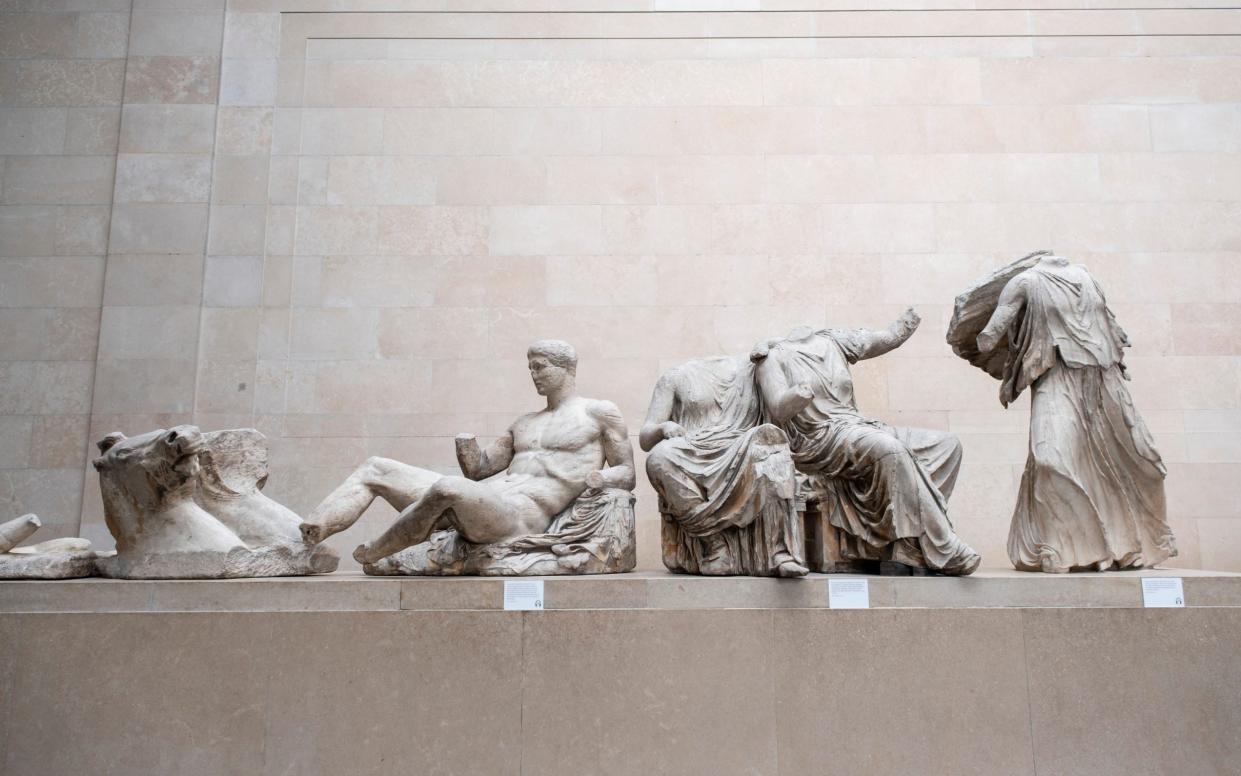Greece may refuse to give back the Elgin Marbles

The Elgin Marbles are at risk of being kept in Greece despite the promises of the government in Athens if they are loaned by the British Museum, a new report has said.
Loaning the marbles is too risky, despite the claims made by Athens that the artefacts would be returned, the report for the centre-right think tank Policy Exchange has claimed.
British Museum trustees, including chairman George Osborne, are due to meet this week to discuss a possible new deal that could see the marbles temporarily returned in a swap for artefacts shipped from Greece as a form of collateral.
But writing for Policy Exchange, Sir Noel Malcolm, a senior research fellow at Oxford University, said of the prospect of a loan that “whatever promises Athens makes, or whatever items it offers in temporary exchange, the risks that the marbles will not be returned to London are too great”.
The risks include the possibility of “judicial seizure” in the form of legal action, taken by individuals or organisations in Greece that could lead to a ruling that the marbles should not be returned, according to the report.
It also says the return of the marbles could prompt mass protests for them to be kept permanently, which could force the Greek government to change its stance.
Eleven per cent think marbles will return
The think tanks point to new polling that shows only 11 per cent of the public think the Elgin Marbles will return to London at the end of the loan period if they are sent to Greece.
The British Museum should not lend the marbles to Greece without Athens accepting the museum’s legal ownership, the report says.
The Greek government rejects the museum’s legal ownership, on the basis that the artefacts were stolen by Lord Elgin in the early 18th-century.
The new deal would allow both governments to circumvent the issue.
In September 2022, The Telegraph revealed that a new “Parthenon Project” had been established by Greek plastics magnate John Lefas, which aimed to fly British politicians to Athens and persuade them of the Greek cause.
Lord Vaizey, the former Conservative culture minister who now heads the Parthenon Project, criticised Policy Exchange’s position.
“Their view that Greece could not be trusted to return them says everything about their outdated and patronising view of this issue,” he said.
“We should support George Osborne’s imaginative efforts to move beyond the status quo.
“We are a generous nation with world-class cultural resources and can afford to have a reasonable and sensible debate on this issue.”
Part of Britain's cultural heritage
The report also argues that the marbles have become part of Britain’s cultural heritage over 200 years, and their removal could set a precedent for other artefacts.
It calls for the Government to affirm its support for retaining the marbles, and make no change to the current law, which does not permit the museum to give them away.
Earlier this month Rishi Sunak said the Government had “no plans” to change the rules around the collections in the British Museum, adding that the marbles are a “huge asset” to the UK.
Tim Loughton MP, chairman of the British Museum All-Party Parliamentary Group said: “Recent siren calls by celebrity-backed campaigns funded by millionaire plastic magnates to give the marbles to Greece are misguided and dangerous and threaten to open the floodgates for the despoilation of our world institutions.
“Noel Malcolm’s report for Policy Exchange brings a welcome injection of fact and good sense to a recently confected debate that completely misunderstands the role of world museums, and which worryingly treats some of the world’s greatest cultural treasures as mere bargaining chips for diplomatic or political advantage.”

 Yahoo News
Yahoo News 
